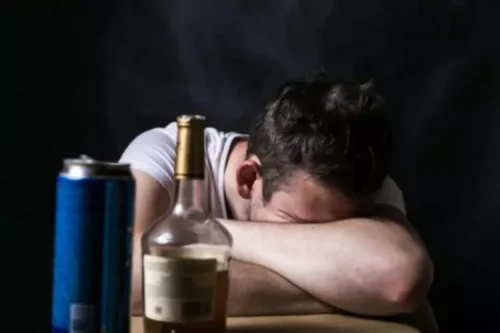
The longer you’re abstinent, the more time your mind and body have to heal. By this time, people are often beginning to feel better and notice more energy. “My worst withdrawal symptom is that my brain does not seem to work very well. Lots of spelling errors and poor fine-motor skills. I will not even go into the insomnia.” “The recent nine months’ sobriety has done great good for my body. That said, I hope never to forget how much damage I felt in four days of drink.”
Stage #3: The Consequences Of Problem Drinking Start To Show
The more symptoms you can link together, the higher the likelihood that it’s alcohol, not sleep deprivation, that’s behind the behavior. These attitude changes are much less likely to occur in someone who is tired, and are usually always a sign of being drunk, not sleepiness. While a person running on little to no sleep might appear short-tempered or impatient, it doesn’t usually escalate to the degree that intoxication leads to. This leads to decreased cognitive performance, memory lapses, and difficulty concentrating. Research shows that chronic sleep deprivation can also increase the risk of serious health conditions, such as diabetes, high blood pressure, and cardiovascular disease.

Confusion (BAC: 0.18–0.30%)

Congeners are products of the fermentation process that impact the taste and appearance of the alcohol. Since our body needs to work harder to break down ethanol and added congeners, the toxins from alcohol take longer to be metabolized and eliminated. There are few reported differences between the “wine drunk” that different wines produce.
- This can make individuals feel more outgoing and willing to engage in conversations and activities they might normally avoid.
- Sensitivity to alcohol varies among individuals and can be influenced by genetics and other factors.
- ” Although we’ve popped the top off the theory of “wine drunk,” there may actually be a difference between a regular hangover and one you get from drinking wine.
How is Alcohol Intoxication Treated?
- A person at this stage will exhibit symptoms of intoxication that will be glaringly obvious to others.
- Legal systems may also address the consequences of alcohol-impaired behavior in other settings, with penalties varying by laws and severity of the incident.
- The first two stages of being drunk are more common and less dangerous, ranging from a light euphoria to excitement and exaggeration.
- It is important to note that while these initial stages may be enjoyable for some individuals, excessive alcohol consumption can lead to negative consequences.
The highest-rated alcohol and drug addiction treatment center in Missouri with support for life. According to the 2022 National Survey on Drug Use and Health, AUD remains a significant public health issue. In the United States alone, an estimated 29.5 million people ages 12 and older have had AUD in the past year, highlighting the need for widespread awareness and accessible treatment options.
The Science Behind Alcohol and The Brain: The Addiction Cycle

There may be moderate memory impairments and a loss of cautiousness. Identifying problems with alcohol early can help prevent dependence and addiction. Medical treatment may be necessary to detoxify the body of alcohol and to obtain a fresh start.

Do I Need Alcohol Abuse Treatment?
For many, it’s very difficult to get past the third day of unrelenting shakes and sweats without picking up a drink. “Last night was horrible. I was soaking wet with sweat, I jumped a stages of being drunk few times in my sleep, and I had very vivid dreams.” “Thankfully, I’m able to sleep, and the shakes come and go, but the anxiety and the dark places are tough.” “Shaking so bad I can hardly type, can barely stand up, can’t eat or sleep. Might be time for a trip to the ER.”
- If the withdrawal symptoms persist for five days, many give in and take a drink to get some relief.
- There is nothing noble about an alcoholic death; it is slow, painful, and pitiful.
- You hit the dance floor and sing/scream about 90% of the lyrics, sippin’ on your drink whenever your brain comes up short.
- It also includes binge drinking — a pattern of drinking where a male has five or more drinks within two hours or a female has at least four drinks within two hours.
We can avoid alcohol poisoning by limiting our drinking and appropriately spacing out our cups. In terms of quantity, it doesn’t take much to begin experiencing the repercussions of intoxication. The bodies of men and women break down ethanol at about fifteen milligrams per hour. A standard person can metabolize about 1 alcoholic beverage per hour without being intoxicated, and so on. A person who has consumed too much alcohol is at risk of aspiration, or Twelve-step program choking on their own vomit, or becoming severely injured, which can be dangerous and even fatal. With 1-3 drinks for women and 2-3 for men, individuals often feel more confident, talkative, and less inhibited.